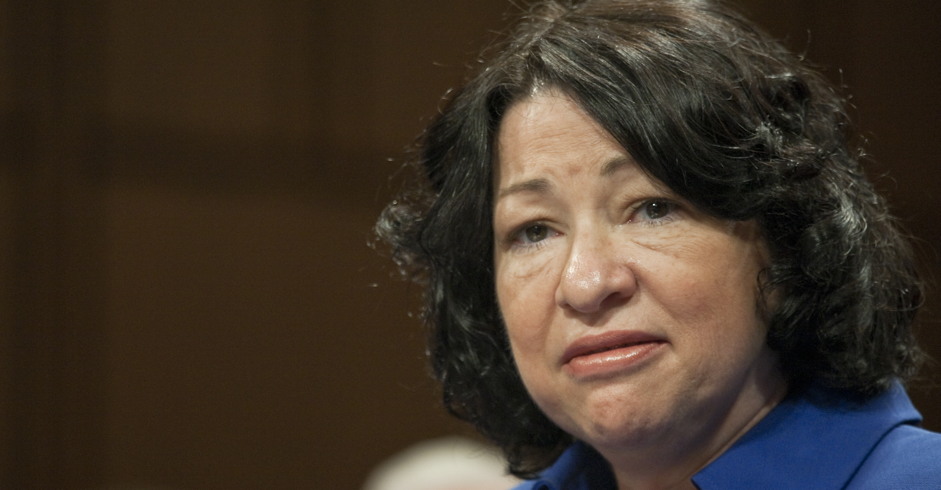News
Almost Everything You’ve Heard About The Anti-Gay Sweet Cakes Wedding Cake Case Is (Probably) Wrong
Last week, Oregon ordered the owners of the infamous “Sweet Cakes by Melissa” bakery to pay damages to a lesbian couple they had discriminated against, and subsequently harassed — and conservative media, of course, got it all horribly wrong.
In January 2013, when Laurel Bowman and Rachel Cryer planned to marry, they selected a bakery they had done business with before: Sweet Cakes by Melissa. The couple had no idea what horrible anti-gay discrimination and acrimony the bakery owners, Aaron and Melissa Klein, had in store for them — simply because they are gay.
Four years earlier, the Bowman-Cryers moved from Texas to Oregon seeking an inclusive community and friendlier state. They settled into the Portland suburb of Gresham. A few years later, with marriage equality nearing, the couple hoped to adopt their foster kids, and to tie the knot!
Cryer wanted a grand wedding. Her mother came to town, and they visited a local bridal show where they noticed the Sweet Cakes by Melissa booth. They’d ordered from Melissa’s Sweet Cakes once before — for Cryer’s mother’s wedding — and they enjoyed it. So, they scheduled a Sweet Cake tasting for the following day.
When Cryer and her mother arrived at Sweet Cakes by Melissa, Aaron Klein ushered them to his office, where he then asked for the names of the bride and groom. Told there would be two brides, he refused service right then and there. “I believe I have wasted your time,” he claims to have said. “We do not do cakes for same-sex weddings.”
Crying and apologizing to her mother, who Cryer felt she’d deeply embarrassed, she headed to the car. A few moments later, her mother returned to the bakery to defend her daughter. She reasoned with Aaron Klein, saying that she’d once felt as he did, but after having two gay children, her “truth had changed.”
In response, Aaron Klein referenced a Bible verse from Leviticus — which in context, he’d cited perniciously — to call the Bowman-Cryer family “abominations,” which he denies.
When they arrived back home, Cryer retired to bed, distraught and questioning nearly everything. Bowman tried to console her, without success. Bowman always viewed herself as Cryer’s protector, and wondered if a wedding was a good idea if it came with such heavy cost to her family’s emotional well being. One of their kids became upset amidst the emotional tumult.
This was the second time they’d faced discrimination, just trying to plan a wedding as a gay couple. Determined in defending her fiancé and trying to make the world a better place, Bowman filed a consumer complaint with the Oregon Department of Justice (DOJ).
She wrote:
“In november of 2011 my fiancé and I purchased a wedding cake from this establishment for her mother’s wedding. We spent 250. When we decided to get married ourselves chose to back and purchase a second cake. Today, January 17, 2013, we went for our cake tasting. When asked for a grooms name my soon to be mother in law informed them of my name. The owner then proceeded to say we were abominations unto the lord and refused to make another cake for us despite having already paid 250 once and having done business in the past. We were then informed that our money was not equal, my fiancé reduced to tears. This is absolutely unacceptable.”
Cryer spent the most part of the next few days in bed, recovering as her loved ones took to actions. Cryer’s mom left a review on the Sweet Cakes’ Facebook page, cautioning customers on the bakery’s secret “no same-sex wedding” policy. Bowman sent an email to their wedding venue, doing similarly.
It wouldn’t be long till Sweet Cakes’ referral network began to dry up. The people of Gresham, Oregon knew discrimination is wrong — and they’d prefer not to be associated with that sort of bigotry.
The Kleins did not go out of business nor did they go bankrupt, contrary to what the right wing claims. They chose to close their brick-and-mortar shop and take their business online, as many companies do.
Later, the Oregon DOJ sent Cryer’s consumer complaint to the Kleins, with a cover letter requesting that they respond to the complainants. It was an attempt to encourage reconciliation.
Instead, Aaron Klein posted the discrimination complaint to Facebook (not taking the precaution of redacting the couple’s name and address from the document). “This is what happens when you tell gay people you won’t do their ‘wedding cake,'” he posted.
The Kleins then took to the news and media. They cozied up to anti-gay hate group Family Research Council, campaigning at appallingly anti-gay hate rallies, for their business’ totally-fictional right to discriminate against LGBT people.
After filing the discrimination complaint, the Bowman-Cryers became the victims of death threats — as well as outrageous and horrific claims by conservative media outlets and anti-gay groups.
After the ruling was finalized, in stories about the discrimination case, some right wing sites, and some anti-gay users of social media depicted gays, and implicitly the Bowman-Cryers, as fascists, the BOLI as the “Minister of Thoughtcrime,” and the $135,000 fine as a “gay fascism tax.”
All they’d done was file a discrimination complaint. That’s all.
Meanwhile, Bowman & Cryer remained so humbly quiet, concerned with their relationship and family. Sadly, they feared that the negative media attention stirred by the Kleins could endanger their care for and the planned adoption of their two foster children. (The kids’ adoption has since been finalized, thankfully.)
Fortunately, the good State of Oregon has public accommodation laws protecting minorities from discrimination. Even better, the Oregon Bureau of Labor and Industry (BOLI) proved so-very capable in investigating and enforcing those laws. Their Final Order against Aaron & Melissa Klein eloquently cut through the cake to the underlying legal matter, discrimination:
This isn’t about cake. It is about a business’ refusal to serve someone because of their sexual orientation. Under Oregon law, that is illegal.
Within Oregon’s public accommodations law is the basic principle of human decency that every person, regardless of their sexual orientation, has the freedom to fully participate in society. The ability to enter public places, to shop, to dine, to move about unfettered by bigotry.
The agency announced the order in a press release, writing:
The BOLI Final Order awards $60,000 in damages to Laurel Bowman-Cryer and $75,000 in damages to Rachel Bowman-Cryer for emotional suffering stemming directly from unlawful discrimination. The amounts are damages related to the harm suffered by the Complainants, not fines or civil penalties which are punitive in nature.
The Final Order notes that the non-economic damages are consistent with the agency’s previous orders, such as an earlier ruling against a Bend dentist In the Matter of Andrew W. Engle. In that case, BOLI awarded a Christian employee $325,000 in damages for physical, mental and emotion suffering due to religious discrimination and harassment.
According to BOLI’s reasoning, a portion of those emotional damages resulted from the Kleins’ public statements and actions in response to receiving the complaint.
“The Agency’s theory of liability is that since Respondents brought the case to the media’s attention and kept it there by repeatedly appearing in public to make statements deriding Complainants, it was foreseeable that this attention would negatively impact Complainants, making Respondents liable for any resultant emotional suffering experienced by Complainants. The Agency also argues that Respondents are liable for negative third party social media directed at Complainants because it was a foreseeable consequence of media attention.”
It’s important to note, as the Washington Post’s Eugene Volokh pointed out, that the “agency’s theory of liability” – the agency being BOLI – was rejected by the final determining authority, BOLI Commissioner Brad Avakian, as stated in the final finding of facts:
The Commissioner concludes that complainants’ emotional harm related to the denial of service continued throughout the period of media attention and that the facts related solely to emotional harm resulting from media attention do not adequately support an award of damages. No further analysis regarding the media attention as a causative factor is, therefore, necessary.
But again, the BOLI stated, its “Final Order awards $60,000 in damages to Laurel Bowman-Cryer and $75,000 in damages to Rachel Bowman-Cryer for emotional suffering stemming directly from unlawful discrimination.”
BOLI’s order finds no difference between being a homosexual and being a to-be-wed homosexual wedding-cake customer. That seems obvious, but it’s logic lost upon the Kleins. After all, they served the Bowman-Cryer’s before the couple became engaged, and discriminated against them only after learning of the couple’s engagement.
In addition to an order of emotional damages, BOLI ordered the Kleins to “cease and desist” discriminating in their business and to stop promoting their business’ policy of discrimination, in accordance with Oregon law.
It must be noted that BOLI isn’t a court of law, it’s a state business regulatory agency. However, the agency’s regulatory power in the case appears soundly-backed by Oregon law. The BOLI order asserts several court decisions and Oregon law to rebuttress the agency’s enforcement authority in accommodation cases.
If the Kleins did not feel the least bit ignorant for discriminating against a to-be-wed gay couple — surely they do now? After all this — two years of acrimony and anti-gay harassment, and a solid regulatory ruling against them. They do not.
They signaled intent to appeal in a Facebook post following the ruling, writing that the BOLI order “effectively strips us of all our First Amendment Rights. According to the state of Oregon we neither have freedom of religion or freedom of speech.”
Conservative media outlets, like Breitbart and several others, and hate groups, like the Family Research Council, ran with that — posting stories that the Kleins had been subjected to a gag order by the state. That’s factually incorrect. The Kleins have not been issued a gag order, nor are they prohibited from speaking about the case, as they and others allege.
BOLI’s order draws a distinction between the promotion of practiced discriminatory business policy, and religious freedoms or free speech (including political speeches); a distinction the Kleins’ attorneys should advise their clients on—for the sake of their client’s business understanding, if not for the sake of community.
Following the BOLI order, the Bowman-Cryer’s attorney offered a statement from the family:
“This has been a terrible ordeal for our entire family. We never imagined finding ourselves caught up in a fight for social justice,” they said. “We endured daily, hateful attacks on social media, received death threats and feared for our family’s safety, yet our goal remained steadfast. We were determined to ensure that this kind of blatant discrimination never happened to another couple, another family, another Oregonian.”
Editor’s note: All the details in this report come from the State of Oregon’s Bureau of Labor and Industry (BOLI) final finding of fact, unless otherwise linked. For more, see also OregonLive and Snopes.
Editor’s note II: 07.11.15 –
In order to be as comprehensive and accurate as possible, this article has been updated to include analysis published after our original publication date from Washington Post’s Eugene Volokh, as noted above.
CORRECTION [July 7, 2015]: Thanks to Paul F. Thompson, civil rights attorney for the Bowman-Cryer family, for pointing out that in writing the story I’d somehow swapped Bowman and Cryer’s names. I regret that error and the story has been corrected. — BC
RELATED:
Same-Sex Couple In Sweet Cakes By Melissa Case Received Death Threats
GoFundMe Cancels Sweet Cakes By Melissa Fundraising Campaign, Bakers Blame ‘Satan’
Final Verdict In Oregon Bakers Case Comes To $135,000 – Right Wing Furious Over ‘Gay Fascism Tax’
Image: Screenshot via YouTube
Enjoy this piece?
… then let us make a small request. The New Civil Rights Movement depends on readers like you to meet our ongoing expenses and continue producing quality progressive journalism. Three Silicon Valley giants consume 70 percent of all online advertising dollars, so we need your help to continue doing what we do.
NCRM is independent. You won’t find mainstream media bias here. From unflinching coverage of religious extremism, to spotlighting efforts to roll back our rights, NCRM continues to speak truth to power. America needs independent voices like NCRM to be sure no one is forgotten.
Every reader contribution, whatever the amount, makes a tremendous difference. Help ensure NCRM remains independent long into the future. Support progressive journalism with a one-time contribution to NCRM, or click here to become a subscriber. Thank you. Click here to donate by check.
 |






















